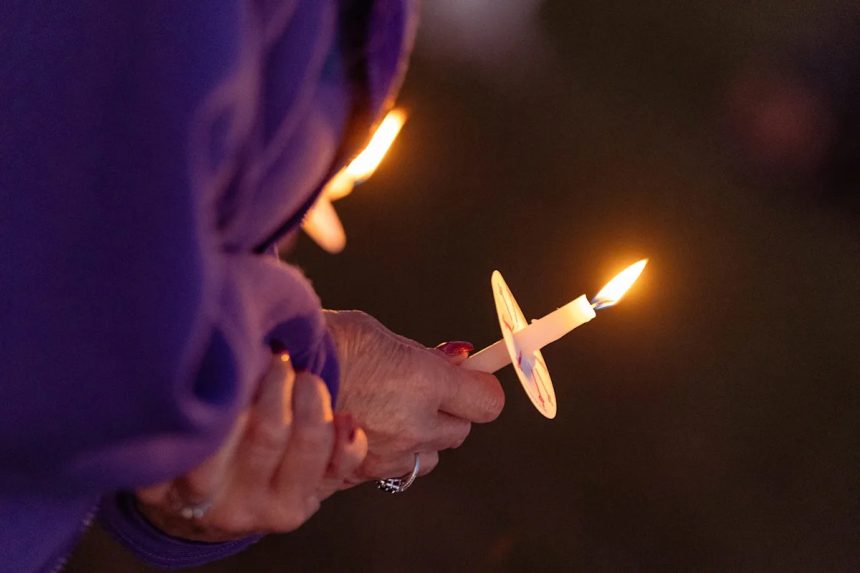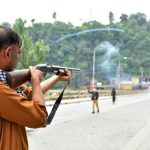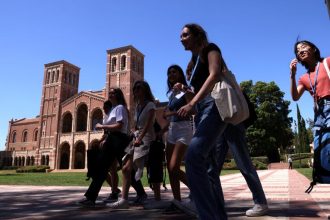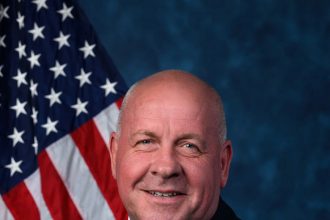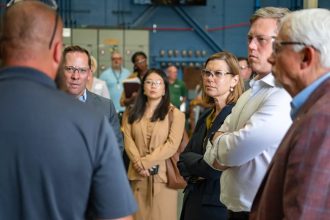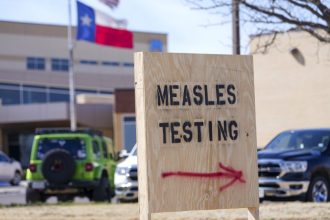As Jewish people enter synagogues across the country for Yom Kippur, the holiest day of the Jewish calendar, many will be greeted by metal detectors, bag check procedures and armed security guards.
The holiday this year comes amid a surge in violence at places of worship in the United States and elsewhere, including the Sept. 28 rampage at a Michigan church, an August shooting at a Minneapolis Catholic church that left two children dead and more than a dozen people injured, an assault in May on the Capital Jewish Museum in Washington, D.C. that killed two Israeli embassy staffers, and a rash of vandalism at mosques.
Most recently, an attack outside a synagogue in Manchester, England on Oct. 2 left two people dead and three injured. Police said a man drove a vehicle at pedestrians outside the synagogue and at least one person was stabbed.
The violence once might have led synagogues, mosques and churches to rush to beef up security. Not anymore.
Religious leaders USA TODAY spoke with said the threat of violence has become part of everyday life. Many said they enhanced protections for their members well before the most recent attacks.
“People are rattled all the time. It’s a regular occurrence,” said Lindsay Feldman, executive director of Washington Hebrew Congregation, a synagogue in the nation’s capital.
Washington Hebrew’s security budget has more than doubled since Hamas’ Oct. 7, 2023 attack on Israel, Feldman said. The synagogue hired a full-time security director and implemented everyday safety measures, such as metal detectors and check-in systems for services.
While synagogues are especially vigilant during the Jewish high holidays, Shira Hutt, executive vice president of the Jewish Federations of North America, said safety is something most worry about year-round nowadays.
Targets on Mosques ‘not unique’
Other religious communities said they have been preparing for events of mass violence for decades.
Edward Ahmed Mitchell, deputy director of the Council on American–Islamic Relations, a Muslim civil rights group, said that while the recent attacks “should make everyone, including American Muslims, more conscious of their security,” he hasn’t seen a surge requests for guidance about safety.
Community members and supporters gather in Burton, Michigan, on the night of Sept. 28 for a scheduled prayer vigil honoring the life of Charlie Kirk, following a nearby mass shooting in Grand Blanc Township.
“The recent attacks have not sparked some massive influx to our office of expressions of concern, again, because I think our community is already always a bit on edge when it comes to security,” Mitchell said.
Violence on mosques increased in the wake of the Sept. 11, 2001, terror attacks. In the decade following the attack, the Department of Justice investigated more than 800 incidents of violence, threats, vandalism and arson against Arab Americans, Muslims and others perceived to be of Middle Eastern origin.
“9/11 was probably the key moment in which every mosque had to stop and think about security in a way that they hadn’t thought about it before,” Mitchell said. Then came the Christchurch mosque attacks in New Zealand that killed 51 Muslim worshippers in 2019.
New Zealand banned military-style semiautomatic weapons and assault rifles months after the attack – the deadliest shooting ever in the country – and strengthened its counterterrorism laws.
Mosques around the world also “stepped up” their security procedures after the shooting, Mitchell said. CAIR led self-defense presentations, in coordination with law enforcement, teaching about how Islamic places of worship could improve protection and respond to vandalism and violence.
Since the war in Gaza began two years ago, threats have increased against Muslim and Jewish institutions. Mitchell said it “made a bad situation somewhat worse.”

A picture of one of the victims is seen among the flower tribute at a memorial site for victims of the mosque shootings, at the Botanic Gardens in Christchurch, New Zealand, March 18, 2019.
Christian churches
Despite the recent attack in Michigan, The Church of Jesus Christ of the Latter-day Saints isn’t planning to add any “out of the ordinary” safety procedures to its semi-annual General Conference later this month.
The Church’s General Conference is scheduled for Oct. 4 and 5 in Salt Lake City, just a week after the shooting in Grand Blanc, Michigan.
Salt Lake City Police Sgt. Miles Southworth said the city plans to handle the event with the same precautions it has in other years – by gathering intelligence ahead of time, putting more police officers on scene during the event and preparing for “all possibilities.”
But elsewhere, some Christian churches say they are tweaking existing safety protocols.
Joe Ward, the executive pastor at Green Valley Baptist Church in Henderson, Nevada, began helping churches implement security procedures in 1999 after a gunman opened fire at the Wedgewood Baptist Church in Fort Worth, Texas.
Violence today is “more prevalent” than at any other point in his career, Ward said.
When he started at Green Valley in 2022, Ward put together a volunteer security team and hired off-duty police officers to monitor the church during services. In light of the Michigan shooting, in which the gunman drove a truck into the chapel before firing into the crowd, Ward said he’s reviewing Green Valley’s safety policies to make sure they protect against a similar type of attack.
The Catholic Church’s Archdiocese of New York has also re-evaluated its safety measures and added armed security at all parishes and schools in the past few weeks, the organization’s director of communications, Joseph Zwilling, told USA TODAY over email.
Government adding protections for houses of worship
State and federal policymakers have begun offering increased assistance to synagogues, churches and mosques to ramp up protections.
In August, amid the uptick in attacks, the U.S. Department of Homeland Security announced it was awarding $110 million to more than 600 faith-based organizations and nonprofits for security enhancements, such as cameras, warning and alert systems and training programs for staff.

Texas Governor Greg Abbott speaks to members of the news media, after attending an event where U.S. President Donald Trump signed signed executive order banning transgender girls and women from participating in women’s sports, at the White House in Washington, U.S., February 5, 2025. REUTERS/Leah Millis
More recently, Texas Gov. Greg Abbott directed state law enforcement to bolster security at religious venues following the violent attacks on churches. The aim is to “identify threats and prevent life-threatening attacks before they happen,” Abbott said.
Religious leaders told USA TODAY support from law enforcement was a key piece of preventing violence, especially for facilities with fewer resources.
“Some synagogues enhance their security and then have to pull it back because they cannot financially afford that,” Feldman at Washington Hebrew Congregation explained. For organizations with smaller budgets, she said, diverting money from religious services and school programs isn’t feasible.
But at Washington Hebrew, Feldman decided it was a necessity in 2022.
“I no longer wanted to be on the defense,” Feldman said. “We won’t let fear define who we are.”
Karissa Waddick is a reporter on USA TODAY’s Nation Desk. She can be reached at kwaddick@usatoday.com.
This article originally appeared on USA TODAY: How houses of worship are preparing amid wave of violence


